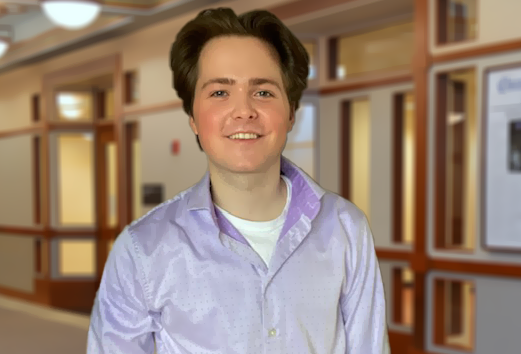
Kyle Craven
Bachelor of Arts in Economics ’19
Master of Science in Economics & Policy Analysis ’20
Minor in Climate Change Science & Policy
Hometown:
Chicago, Ill. (Lincoln Park)
Why did you choose DePaul?
I knew I wanted to study at a university with a dedicated and passionate faculty. DePaul professors are not only accomplished and intelligent, but they are also compassionate. They genuinely care about their students’ welfare and success. In fact, one of my previous economics professors messaged me this week to see how I was doing during this crazy, uncertain time. DePaul’s faculty, coupled with its diverse and intelligent student body, make this school a unique and special academic institution, and I am so grateful and lucky to have studied here.
Why did you choose to major in economics?
Since my first economics class in high school, I knew I wanted to study how people use and distribute the limited resources they have. But, I was not aware of how many subfields of economics there are until I got to DePaul. From game theory to urban economics, there are a plethora of fields that economics students can study. Students of economics can pretty much “choose their own adventure” when it comes to figuring out their career path. This variety ultimately led me to major in economics.
What has been your favorite economics class so far?
This is a tough question because I have genuinely enjoyed them all. However, I think my favorite class would be a tie between every econometrics class I have taken. Being able to work with data and tell data-informed stories is a skill that I think is vital for every economics student. I highly encourage all of DePaul’s undergraduate economics students to take at least one econometrics course.
What do you enjoy doing outside of school?
In my free time, I enjoy running, watching soccer, reading, composing music, and hanging out with friends.
The 4+1 program provides students with a lot of flexibility. Undergraduates get a "taste" of what graduate school is like during their senior year without the need to fully commit to any program. As a senior, I was not sure that I wanted to go to graduate school. But, after taking the three graduate courses, I realized there was a lot more I wanted to learn and improve upon. I was also attracted to the program's challenging but rewarding curriculum. This year has flown by, but I have learned a lot and I am a better economist than I would have been if I did not continue with the program. Overall, I am very happy with my decision.
Tell us about your internship experience.
Last summer I was a Cook County Presidential Fellow at Cook County’s Department of Transportation & Highways. That fancy title basically means that I helped the department on a variety of its projects. I was even lucky enough to conduct research work and data analysis on one of the department’s proposed transportation pilot programs.
Are you currently working?
Yes, currently I am a graduate assistant at DePaul. For this position, I split my time as an undergraduate economics tutor and a research assistant. As a research assistant, I work for two DePaul professors on a couple of their research projects pertaining to health economics and development economics.
Micro or macro?
Tough question! I think I'll have to choose micro because in my opinion, it allows you to better understand why individuals make the decisions that they make. I really enjoy studying the economics of specific industries or communities and then connecting those studies to a bigger picture. I really appreciate how micro connects economics concepts with unique industries and communities.
What kind of job do you hope to get after graduation?
After graduation, I would love to work as a research assistant for an organization, government agency or academic institution that focuses on development economics, agricultural economics or environmental economics. Overall, after graduation, I hope to continue to learn and improve my analytical skills while working with intelligent and motivated colleagues.